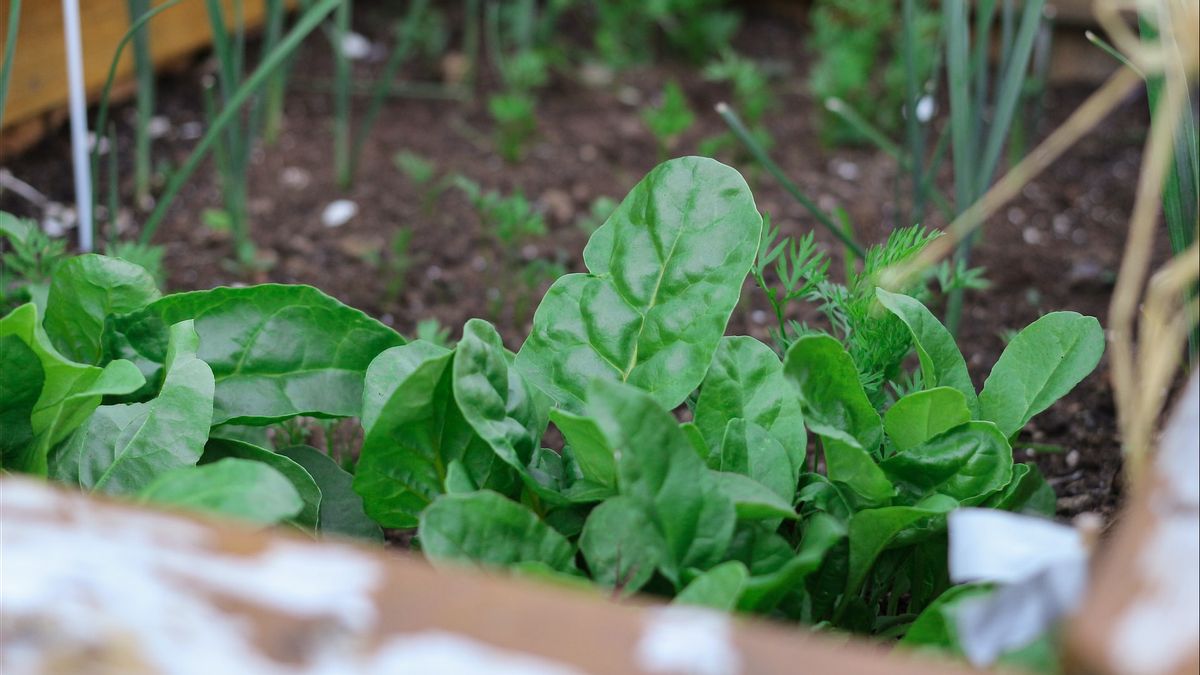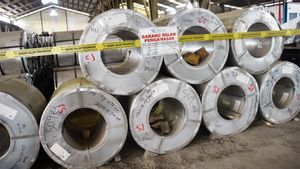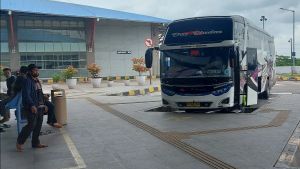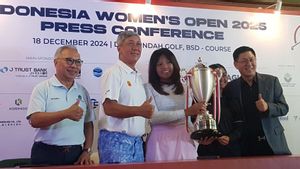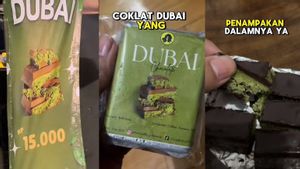JAKARTA - Every day, DKI Jakarta needs supplies of vegetables and various spices for its ten million residents. The amount may reach tens of tons per day.
One of the activities of supplying raw materials can be seen at the Kramat Jati Central Market, East Jakarta. From Kramat Jati, the supply chain continues to hundreds of traditional markets and shopping malls. In these markets, residents can get their vegetable needs.
As a metropolitan city, Jakarta does not have the availability of land to meet its own vegetable needs. Therefore, like it or not, Jakarta relies on supplies from other regions, such as West Java, Banten and Lampung.
In certain situations, supplies are also imported from Central Java and East Java. In fact, Jakarta brought in chilies from South Sulawesi earlier this year.
Without land, it would be difficult for Jakarta to meet its own needs. However, it is not impossible. There are a number of methods that Jakartans can practice to develop agricultural prospects.
Potential techniqueIn the midst of limited agricultural land, the concept of urban farming has great potential. One of them is hydroponics. Many residents have taken the initiative to practice this gardening style independently.
The Provincial Government (Pemprov) of DKI Jakarta seems to be aware of this stretch. Through the DKI Jakarta Food, Maritime and Agricultural Security Service, the DKI Jakarta Provincial Government has begun training a number of Youth Organization activists to carry out urban farming. Child-Friendly Integrated Public Space (RPTRA) is also used as gardening land.
One of the trainings was held in Condet, East Jakarta. In the training, the participants took part in the direct practice of agro-tourism at the Condet Fruit Reserve Garden. A number of materials, such as plant care to services to visiting tourists, are the materials taught in the agro-tourism garden.
The participants were also taught how to maximize agricultural land to make it attractive as a potential for agro-tourism. Narrow land does not mean impossible from agricultural potential. A number of agricultural techniques, such as hydroponics, aquaponics, planting fruit in pots (tabulampot) and vertical gardens can be selected. In addition, there is a microgreen technique that is now popular, namely harvesting various young vegetable plants.
The DKI Jakarta Provincial Government is targeting to create five hundred new urban agricultural cadres by 2019. Throughout 2016-2018 DKI has produced six hundred cadres through the city alley greening program.
In addition, the DKI Provincial Government also provided assistance in the form of a hydroponic installation unit to participants who were selected to take part in the urban agricultural training. The goal is to produce healthier fruits and vegetables because they do not use chemical fertilizers or pesticides at all.
Potential marketWith the tendency of urban communities to follow a healthy lifestyle and consume organic agricultural products, urban agriculture is one way to bring producers closer to consumers. The results of the training series are starting to show. Namely the presence of various hydroponic commodities on the market.
One of the results can be seen in the Kebon Baru Subdistrict Youth Organization group which was successfully pushed into the modern market. "To penetrate the modern market, it must have met the strict requirements of the modern market," said Head of the South Jakarta KPKP Sub-Department Hasudungan Sidabolak.
Hydroponic agricultural products produced by Karang Taruna, Kebon Baru Village, are in the form of various organic vegetables such as lettuce, pakcoy, spinach and kale. The hydroponic organic vegetables were developed through an urban agricultural program promoted in Kebon Baru Village during the COVID-19 pandemic.
Now the product is marketed at Galael Tebet, one of the modern markets in the Tebet area. The youth products entered the modern market under the brand name "New Garden Hydro". The "New Garden Hydro" team can harvest 10-15 kilograms (kg) of vegetables per harvest.
"It is hoped that this achievement can spur other urban farmers who are farming with hydroponic or organic systems on narrow land so that they are more enthusiastic about farming," said Hasudungan, quoted by Antara, Tuesday, July 21.
For the Head of Kebon Baru Urban Village, Fadhila Nursehati, the success of Karang Taruna's hydroponic products in penetrating modern markets is expected to be an inspiration for young people and other residents to remain productive even in conditions of limited land and the Transitional PSBB period.
"Especially during a pandemic like this it is hoped that it can help residents who are affected by the economy," said Fadhilah.
To improve the quality of organic vegetable products, agricultural extension agents from the Tebet District KPKP will continue to accompany the "New Garden Hydro" team from Karang Taruna Kebon Baru.
Not only in South Jakarta, the Women's Farmer Group (KTW) RW 05, Sunter Agung Village, Tanjung Priok, North Jakarta, has also harvested hydroponic and conventional cultivated vegetables. "A total of 40 kilograms of mustard greens were harvested by group members," said Head of the Sunter Agung Urban Village, Danang Wijanarko.
The harvest came from 30 kilograms of hydroponic cultivation and 10 kilograms of cultivation on land. The crops are sent directly to the residents who have ordered them. The proceeds from the sale are used for the development of KTW RW 05 and group cash.
This activity is the success of the community in designing food security for their families and regions in the midst of the corona virus pandemic (COVID-19). With the success of this harvest, Danang hopes that residents will continue to develop a pattern of food security in the region.
The English, Chinese, Japanese, Arabic, and French versions are automatically generated by the AI. So there may still be inaccuracies in translating, please always see Indonesian as our main language. (system supported by DigitalSiber.id)
